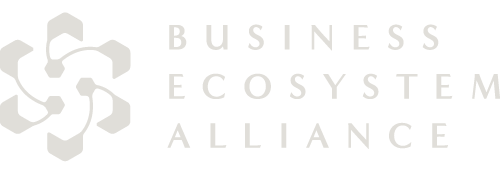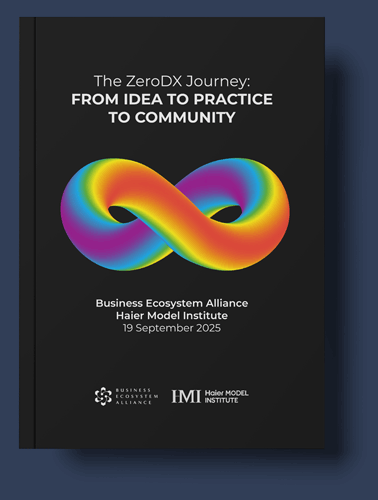

From Provider to Partner: Amber’s Reinvention
Amber Online Education was a winner in the Emergent Excellence category of the 2025 ZeroDX Awards announced in Beijing on 19 September 2025.
Amber Online Education was established in Hanoi in 2015 with a clear mission: to make high-quality learning accessible to professionals and organisations across Vietnam. Rather than scaling through standardised content, the company focused on co-creating learning experiences tailored to the specific needs of each client. Over time, this approach positioned Amber as a trusted partner for companies navigating digital transformation and workforce development. Its client list has grown to include major names such as Techcombank, Samsung, LG, BAT Vietnam, and Lazada.
What distinguishes Amber is not only what it offers but how it operates. The company’s transformation began in 2017 when founder and CEO The‑Anh Nguyen led a shift away from traditional hierarchy toward a structure based on small, autonomous teams. These cross-functional teams were designed to manage the full delivery cycle. Each team carried out client research, developed content, implemented training programmes, and maintained direct communication with users. This structure allowed the company to respond quickly to evolving client needs and reduced internal bottlenecks.
This decentralised model enabled a major turning point in Amber’s strategy. Following an internal review using value stream mapping, the company decided to discontinue more than 80 percent of its legacy services. Teams saw that many existing offerings no longer reflected client priorities. Instead, Amber chose to invest in interactive, modular learning formats developed in collaboration with users. Story-driven simulations and game-based learning modules replaced conventional training formats. Clients were involved early in the design process, which helped ensure relevance and impact.
Amber’s decision to involve customers as co-creators aligned closely with the RenDanHeYi principle of zero distance to the user. Employees were no longer executing on behalf of clients but working with them directly to define learning goals, prototype content, and assess outcomes. This shift was supported by the company’s flat structure and trust-based culture, which allowed teams to take initiative without waiting for managerial approval.
The company’s internal systems also evolved to reflect its belief in shared success. One of the most distinctive elements of Amber’s culture is its peer-based salary process. Rather than using top-down performance reviews, the company relies on a framework inspired by the Japanese concept of Shu-Ha-Ri to assess professional development. Employees evaluate one another based on demonstrated competence in key skills. These evaluations are visible to all, and compensation is determined by the average assessments provided by direct colleagues. There are no individual bonuses. Instead, rewards are shared across teams to reinforce collaboration and mutual accountability.
Amber has complemented this internal approach with a clear external strategy. In 2022, the company launched Amber One, a bundled service that includes a digital learning platform, curated content libraries, and consulting support. The initial offer was extended to one hundred enterprise clients at a subsidised rate to ensure accessibility and promote adoption. Amber One was introduced in collaboration with the Vietnam Financial Consulting Association and the Institute of Financial Services Management, marking a new phase in Amber’s presence in the national education market.
By 2025, the company had delivered more than 500 training projects for over 300 enterprise clients. Its professional learning community includes more than 1,700 members who participate in regular knowledge exchanges, co-development workshops, and industry events. Many new clients join through this network, having seen Amber’s methods first-hand or received recommendations from peers.
Internally, Amber continues to operate without a central HR department. Support functions such as finance and legal are provided as shared services that teams can access based on their needs. Each team defines its own priorities, manages its budget, and holds regular retrospectives to reflect on outcomes and identify improvements. This model reinforces autonomy while maintaining transparency and coordination across the company.
The consistency between Amber’s internal structure and the values it promotes to clients is deliberate. Its learning programmes emphasise self-leadership, initiative, and continuous improvement. These themes are mirrored in how its employees work. The company’s adoption of decentralised decision-making and shared accountability has enabled it to scale without losing flexibility or purpose.
Amber’s story demonstrates how an organisation can move beyond service delivery to become a learning partner. By building trust internally and externally, Amber has positioned itself not just as a content provider but as a co-creator of learning cultures across Vietnam. As The‑Anh Nguyen shared in 2024, the company’s ambition is not to become the biggest in its field, but to be the most respected by those it serves and those who work within it. In doing so, Amber continues to redefine what it means to learn, to lead, and to grow together.
Originally created by Corporate Rebels


